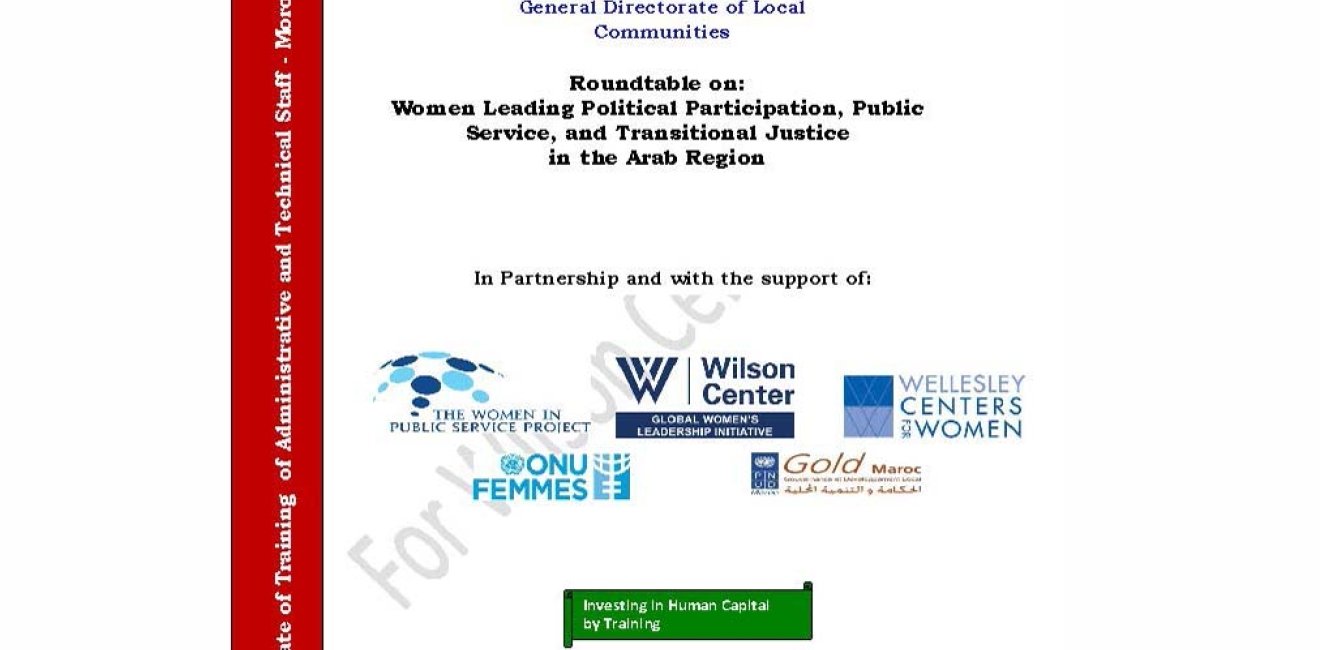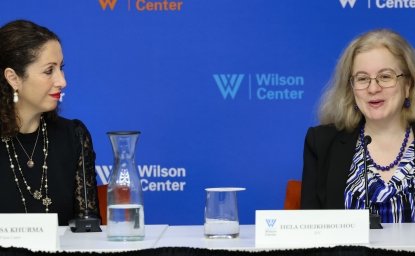The Global Women's Leadership Initiative (GWLI) and the Wellesley Centers for Women partnered with the Ministry of the Interior in Rabat, Morocco to convene a conference on women’s leadership in late November. Regional and global experts met with 200 of Morocco’s leaders in political and public service to strengthen women’s participation in public service in strengthening the rule of law.
Held at the Ministry of the Interior, 200 women parliamentarians and local government elected officials in Morocco exchanged strategies with experts from the region. The GWLI invited WPSP delegates and mentors to participate in this regional dialogue. Our participants included Wajeeha Al Bahrna, Founder of Bahrain Women’s Association for Human Development, Bahrain; Dr. Moushira Khattab, Former Minister for Family and Population, Egypt; Dr. Haleh Esfandiari, Director of the Middle East Program at The Woodrow Wilson International Center for Scholars, United States of America; Dr. Sundus Abass, Senior Gender Specialist at the United Nations Development Program, Iraq; Myriam Aucar, Leading Lawyer and Campaign Manager, Lebanon; Dr. Wafa Bugaighis, Chair of Ministry of Education, Libya; Judge Anware Mnasri, Judge, Tunisia; and Dr. Nafisa Al-Jaifi, Secretary-General of Council for Motherhood and Childhood, Yemen.
The new constitutions of the region will provide the legal foundation for governments, and the constitutional provisions enshrining women’s rights will be vital in defining and determining the status of women. Women’s participation in drafting these constitutions and other reformist initiatives are as important as the constitutional guarantees of women’s rights. The Rabat conference focused on women engaging fully and equally in constitution-making and transitional justice in terms of both substance and process. Constitution-making in democratization focuses on the substance as well as the process of the reforms.
Despite an increase in the number of women in decision making positions, there is still a persistent and glaring disparity between men and women worldwide. An equal representation of women in public service is critical in ensuring not just the advancement of women, but also the public good. Despite the unprecedented reform of gender discriminatory laws in the Arab region, not much change has taken place. For example, a progressive reform in Morocco of the Mudwana law which allowed women to become judges has not contributed to a significant increase in women in that field. In fact, judges have one of the lowest representations of women in politics in Morocco.
The Rabat Roundtable on “Women Leading Political Participation, Public Service, and Transitional Justice in the Arab Region” examined some of the key strategies to achieve women’s leadership in transitional justice and post- transitions in the Arab region. The task force that grows out of this conference will build on shared commitments, new insights, plural strategies, and a common vision to advance women in public service and political leadership in the Arab region.
You can find the agenda for the Rabat Roundtable in the linked pdf.





